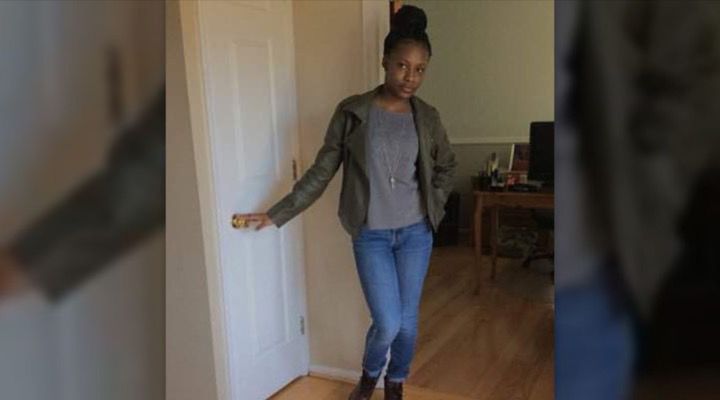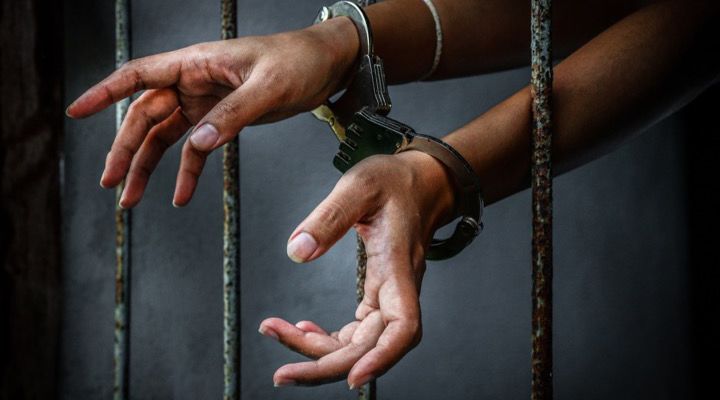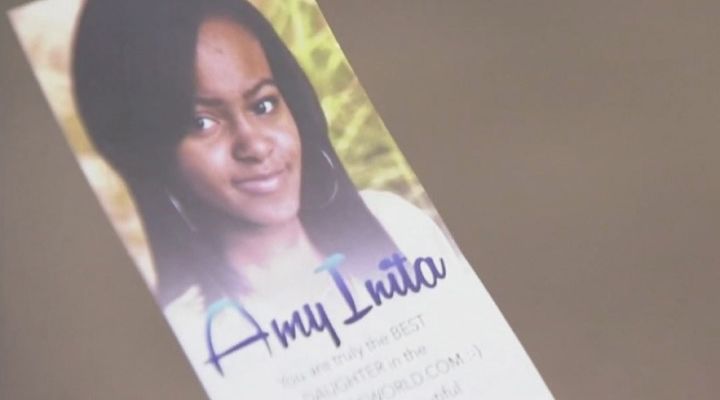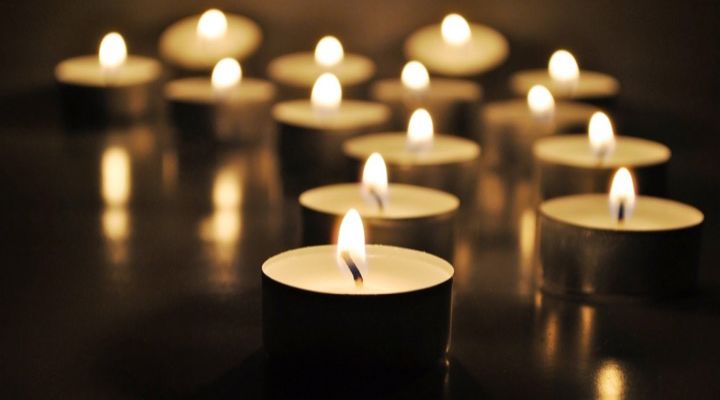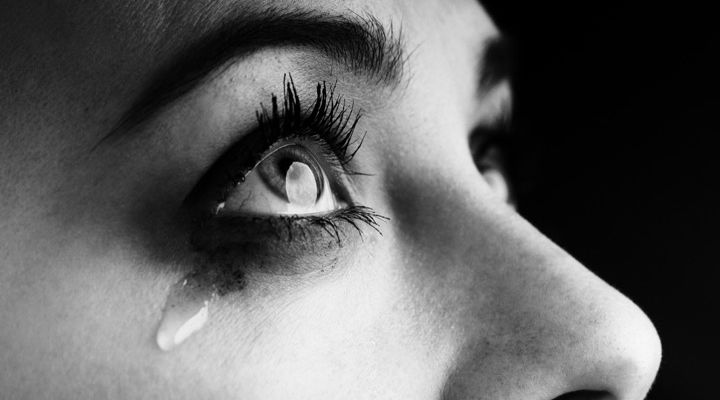We all make mistakes when we’re young. It’s just a part of growing up. As smart as teenagers might believe themselves to be, they lack the life experience to truly understand the consequences of all their actions. This is a story about two young women who made the biggest mistake of their lives.
Yet, were their actions something they had the power to prevent or can they be chalked up to the simple folly of youth? Regardless of the answer, the tragedy that resulted from their actions brings up a number of questions about the nature of culpability…
The Prime of Her Life
Amy Inita Joyner-Francis was 16 years old when she died. If you had asked her mother about her, she would have described Amy Inita Joyner-Francis as “full of life” and driven. Amy had dreams of becoming a doctor or a lawyer; both of which required a high amount of schooling, above-average intellect, and solid social skills. Amy evinced all these qualities.
School Rules
Trinity Carr and Zion Snow were a year older than Amy. The two 17-year-old girls may have been of legal age for many things. They could drive a car, even buy a beer in some countries, but they were not yet adults by any means. This was especially clear in the way they behaved towards some of their classmates; Amy included…
Teenage Scuffle
The fight started, as many of them do, far away from the prying eyes of school administrators in one of the girl’s bathrooms at Howard High School in Wilmington, Delaware. Zion had allegedly planned the attack and Trinity was set to carry it out. The two instigated the fight with Amy, unaware that their quarry had a pre-existing heart condition.
Pull up Your Phones
As expected, several of the girls witnessing the scuffle pulled out their phones and began to record. As the assault wore on, Zion and Trinity slowly realized that their victim was no longer fighting back. It was at this point that they contacted school authorities. Unfortunately, by the time paramedics arrived, it was too late…
Video Evidence
The girls were arrested and subsequent examination of video and social media postings helped the state to secure convictions for two of the apparently three girls responsible for the attack on Amy. According to the prosecution, the girls had been planning the attack for days and the cellphone video was proof of the severity of the assault.
Dragged Around
The video itself shows Trinity Carr dragging Amy Joyner-Francis by her long, braided hair through a handicap-accessible stall in the bathroom. After dragging her from the stall, she swings her arms and punches Amy on the head and torso. Amy meanwhile, lay prone on the floor, helplessly clutching her purse…
Advertising Cruelty
The ensuing trial brought up a number of important questions about the nature of personal responsibility. Some of these aforementioned Internet conversations referenced things like “we gonna get her” – demonstrated a planned aspect of the case that many folks in the courtroom had not been privy to.
Never Expected
The girls’ conversations beforehand and the clothing they wore preparing for the fight, clearly indicated some evidence of premeditation. Nevertheless, the defense argued that even premeditated, Carr could never have foreseen Amy’s death. Yet even if she hadn’t planned on killing her classmate, does that absolve her of responsibility?
Prison for a Teen
Prosecutors had originally sought to have Carr tried as an adult in Superior Court. This meant that if she were convicted, she could spend up to eight years in prison. Many, especially Amy’s grieving parents, believed that this was the right thing to do, others, argued the effect incarceration would have on Carr’s psychological well-being.
The Argument Against
Carr’s attorney, John Deckers, argued passionately for his client. His assertion was that “the cornerstone of juvenile justice is that children shouldn’t be judged by the worst thing they’ve ever done.” Instead, he urged the judge to strive for rehabilitation. At only 17 years old, Trinity Carr was far from lost…
Well Worth It
“Children are well worth the investment of time and services because they are mentally, psychologically resilient and open to change,” Deckers explained. “Their behavior is correctable, and they are capable of becoming caring, productive members of society.” Luckily for Carr, the judge agreed with him.
No Prison
Juvenile prison was officially off the docket for Carr, but that didn’t mean that she was off the hook. Instead, Carr was sentenced to six months at Grace Cottage; a secure residential program for female youth near Wilmington. That wasn’t all though. Rehabilitation was not going to be a walk in the park for Trinity Carr…
Additional Banning
In addition to her stint at Grace Cottage, Carr must also complete 500 hours of community service. These hours are to have an emphasis on serving young people like herself who have been abused or bullied. She has also been banned from social media until the age of 21. Yet, though this may feel like poetic justice, some argue that it is no justice at all.
Backlash
For Carr’s part, there have been many real consequences for her and her family. Her parents and siblings have faced ridicule and become pariahs in their own community for their daughter’s sins. No matter what the court had decided, they would undoubtedly still be feeling the effects of her mistake for years to come. But what of the other girl who helped organize the fight…
My Baby’s Life
Inita B. Joyner, Amy’s mother, was not happy with either outcome, unfortunately. “They took another human being’s life,” she wrote in a letter to the court. “A child’s life, my baby’s life, and this is not acceptable in any manner.” She also spoke about how proud she was of Amy, how mature, kind, and positive she had become.
Another Sentence
Zion Snow, the 17-year-old girl who was accused of planning the attack, never actually threw a punch on Amy, but that didn’t make her any less complicit in the eyes of the court. She too would see some time in a juvenile detention center and would owe the court 300 hours of community service. Nevertheless, the punishment was only a piece of what this case represented…
An Important Message
In the end, the prosecution got what they wanted. Carr was being tried for criminally negligent homicide and third-degree conspiracy and even though her conviction came with no mandatory incarceration, it sent an important message to other teens. The judge who passed down the sentences agrees.
Everyone Loses
Family Court Judge Robert Coonin presided over the case and had much to say in the aftermath. “It is a case in which no one is looking to determine who wins and who loses because everyone has lost,” he explained. “The community has lost, the defendants and their families have lost, and most importantly, Amy’s family has lost…”
Hope for the Future
Judge Coonin’s hope is that in banning both girls from social media, they will regain an appropriate appreciation for others. It may also help them to understand how to appreciate the positive uses of social media and the ways in which it can be abused; such as by cyber-bullying and the like.
No Closure
“As all noted, Amy can never be brought back,” Coonin expressed to the parents at the end of the trial. “But this is something that will hopefully give closure to all involved and allow for this community to heal.” Still, even the judge agrees that this is a far cry from closure. At least as far as Amy’s family will ever be concerned.


